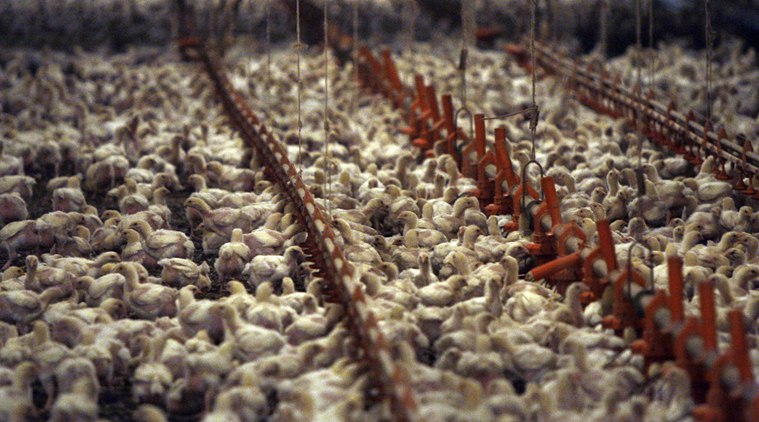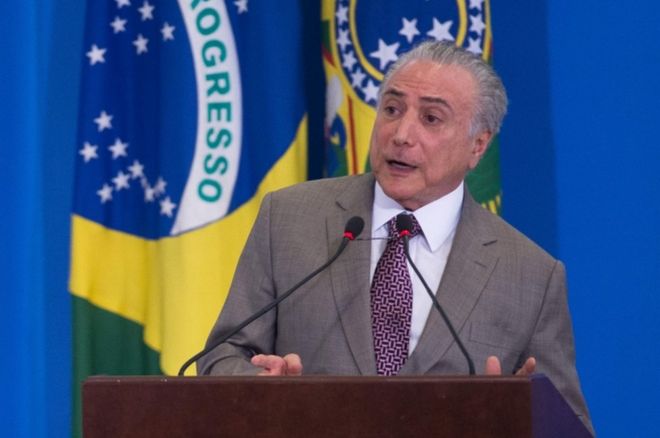
The deployment of 8,500 soldiers to Rio de Janeiro last week and the funeral on Monday for an unborn baby killed in one of numerous shootouts there were not part of Brazil's plan for marking the one-year anniversary of the Olympic Games held in the city.
Escalating violence, fueled by a deep economic crisis and a shrinking state budget, shows how far Rio has fallen since international athletes flocked to its stadiums, many now vacant, in August 2016. Growing allegations of graft involving Olympic projects are also tarnishing memories of the Games.
Official data shows murders in Rio de Janeiro state rose 14 percent to 3,755 in the first half of 2017 from a year earlier. The number of people killed by Rio's police, long criticized for their tactics, spiked more than 45 percent to 581.
"We see clearly that the Olympic promise of a safe city has not been fulfilled," Amnesty International research coordinator Renata Neder said at an event on Thursday. "Public safety in Rio de Janeiro has deteriorated dramatically."
The situation is a stark reversal of gains made after police began a "pacification" program in 2008 for some of the city's more than 1,000 slums.
Police pushed drug gangs out of those favelas, where they held sway with impunity for decades, and then set up permanent posts in the communities for the first time.
That program was meant to increase security in Rio ahead of the 2014 World Cup and last year's Olympics, and it temporarily succeeded in doing that.
But the economic crisis dried up funding to expand the program, and critics say the government did not make good on promised social advances for the slums. As a result, near-daily shootouts roil the areas as gangs battle each other and openly attack the police outposts to try to regain full control.
The Hospital da Posse on Rio's violent northern outskirts has treated 410 patients for bullet wounds so far this year, compared with 480 for all of 2016, surgeon Alessandry Bastos said.
"This thing is growing in such a way that we can never say we've reached the peak," Bastos said. "The peak will be tomorrow."
The situation is unlikely to improve anytime soon, with Rio state facing a 21-billion-real ($6.73 billion) deficit this year.
GRAFT SCANDAL
The city has also become a symbol of the graft that helped cause the country's worst recession in more than a century after revelations that builders inflated contracts to bilk Rio-based state-controlled oil company Petroleo Brasileiro SA out of billions of dollars.
Prosecutors say the scheme extended directly to the Olympics, whose price tag rose to 43.3 billion reais ($13.88 billion) from 28.8 billion budgeted. Police arrested former Rio head of infrastructure Alexandre Pinto this week on suspicion that he and other officials took 35.5 million reais in bribes from companies involved in Olympic projects.
Former Rio governor Sergio Cabral was found guilty in June of corruption and money laundering involving infrastructure contracts for the Games.
Rio has also been sharply criticized for the fate of its Olympic infrastructure.
Some of the venues were abandoned soon after the closing ceremony, and the Arena of the Future has yet to be transformed as planned into a useful building like a school.
Officials say the economic crisis left them hamstrung.
"There are legacy projects that we want to follow up on, but we don't have the resources," Rio Deputy Sports Secretary Patricia Amorim said.
But for many, the Games' worst legacy is the deep slide into violence.
In late June, Claudineia dos Santos, who was nine months pregnant, was struck by a stray bullet that also hit the spine of her unborn boy, Arthur, in a northern Rio slum as police and a drug gang battled nearby.
Arthur died on Sunday, a month after an emergency cesarean, and was buried the next day.
Deploying the army will not solve such problems, said security expert Ignacio Cano, a professor at the Rio de Janeiro State University, which has been closed due to lack of funding.
"Under the best-case scenario, the armed forces will leave, and everything will continue normally," he said.
The worst case? "There is the possibility of more aggressive offensive operations that could lead to more shootings and more insecurity."
($1 = 3.1207 Brazilian reais)
Source: Reuters




